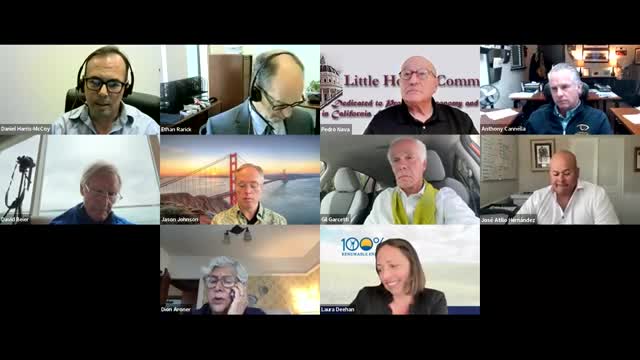Article not found
This article is no longer available. But don't worry—we've gathered other articles that discuss the same topic.
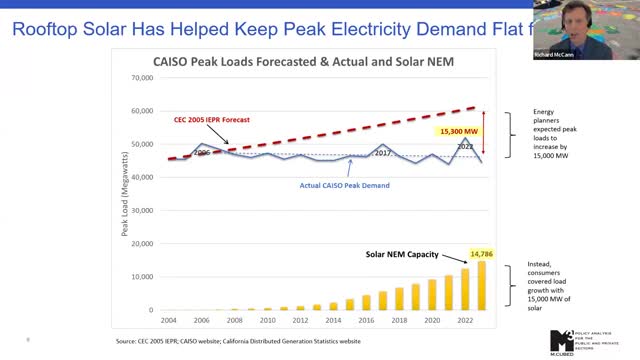
Solar industry and advocates tell commission rooftop solar reduces system costs and serves middle-income Californians
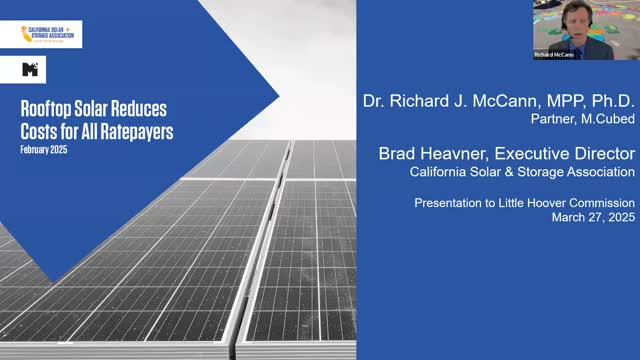
Experts tell Little Hoover Commission that utility spending, not rooftop solar, is the main driver of rising electricity rates
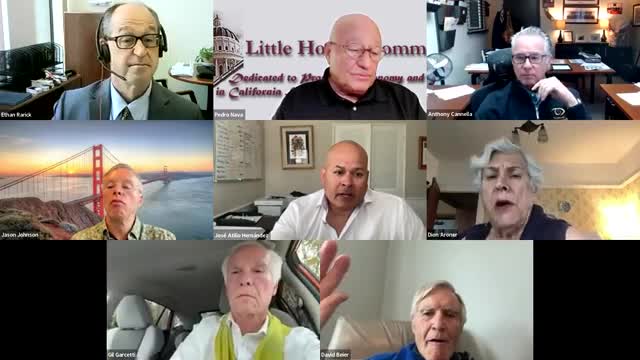
Little Hoover Commission re-elects Andrew Nava as chair and Anthony Canela as vice chair
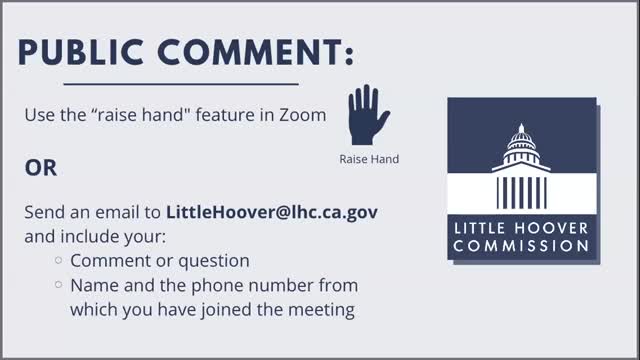
Public commenters correct program funding assumptions and voice affordability concerns at Little Hoover Commission hearing

Environmental justice coalition urges state to expand multifamily and renter access to solar and energy programs
